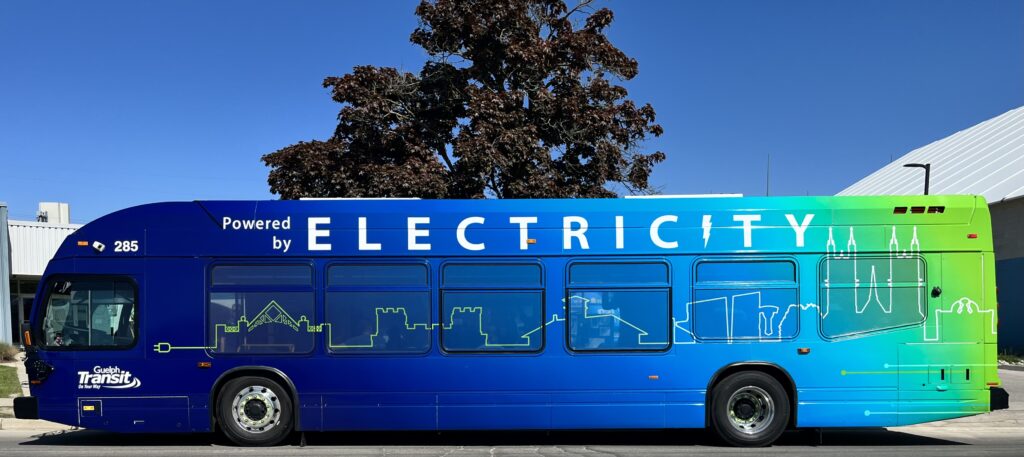On this page

The City of Guelph is committed to reducing its carbon footprint and building a more sustainable community and are proud to add electric buses to its fleet. The City’s growing fleet of electric buses will help Guelph become a net-zero carbon community by 2050 and win the Race To Zero.
While the new Guelph Transit and Fleet facility is being built, the electric buses will be stored and charged at the existing Guelph Transit facility on Watson Road South.
Fast facts about the electric buses
- Electric buses lower the City’s greenhouse gas emissions which means better air quality in our community.
- They can travel up to an average of 300 kilometres per charge.
- The buses can be fully charged in approximately 3 hours.
- They’re quieter, which helps reduce noise pollution in the city.
- The electric buses have six large battery packs: four on the roof and two behind the rear wheels.
Guelph is a green city
The City of Guelph is committed to the United Nations’ Race To Zero global initiative and is working on several initiatives to reduce community carbon emissions by 63 per cent against the 2018 baseline by 2030, and to become a net-zero carbon community by 2050.
To do this, the City is building on our strategic and community plan objectives by improving transit and active transportation opportunities, focusing on energy efficiency in City facilities, revitalizing natural areas and increasing the urban tree canopy and implementing waste reduction strategies.
- Guelph’s new Transit and Fleet Services Facility will store and charge the City’s electric buses and other electric fleet vehicles.
- Install several energy efficient upgrades at different facilities including solar panels, heat pumps, electric vehicles and LED lighting.
- Ensure new facilities like the South End Community Centre and the Baker Library conform to Zero Carbon Building Standards to save more energy.
- Increase Guelph’s tree canopy to 40 per cent by 2070.
- The City is the first and only large urban municipality in Ontario to implement a single-use plastics reduction strategy and bylaw, ahead of the Government of Canada’s policy.
